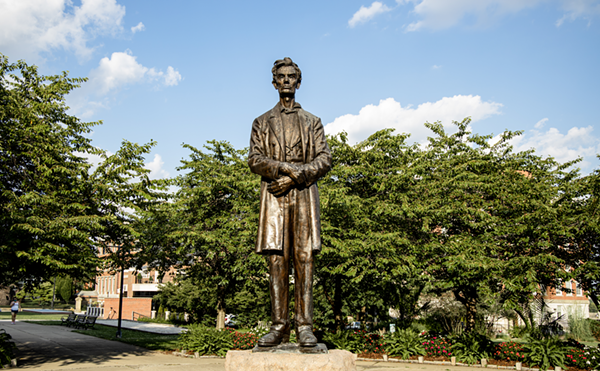|
Writer/director Barry Levinson (Rain Man) squanders an attempt to stir debate over the Republican voter fraud that marred the 2000 and 2004 presidential elections and that threatens to cloud the upcoming 2008 balloting with an imploding satire about a television comedian who runs for President of the United States.
Tom Dobbs (Robin Williams) is a freethinking political talk show comic, à la Jon Stewart, who takes up a challenge from his fan base to run for President as an Independent. Dobbs relies on a grassroots movement and refuses to run an expensive television ad campaign that would obligate him to special interest groups that might support him. What starts out as a promising political satire quickly sinks in a quagmire of over-leveraged dramatic subplots and an ending that neutralizes the film's apparent thematic intentions.
"People are watching comedians for news. How crazy is that?" The words of Tom Dobbs' speech writer Eddie Langston (Lewis Black) illuminate America's pop culture-obsessed public who are more interested in voting for the next "American Idol" than they are about addressing Republican voting duplicity that led to the destruction of civil liberties under an authoritarian tyrant. But Black's character doesn't go far enough with his appraisal in defining the unintended effect that political comedians have in creating an illusion of opposition against a corrupt government manipulated by exploiting corporations.
Levinson applies light brushstrokes to the unholy unification of Republican and Democratic parties during the film's thematic centerpiece sequence when Dobbs co-opts a presidential debate as a bully pulpit for delivering his dissenting ideas. Dobbs walks out from behind the lectern to give a smackdown to the entire debate process by enthusiastically upbraiding his rivals for disguising their equally divided relationships with the oil companies that support them.
The audience howls in agreement when Dobbs tells his opponents, "If you're representing special interest groups, maybe we should be like NASCAR, with little patches on the back — Enron: We take your money and run."
Eleanor Green (Laura Linney) works as a programmer for Delacroy, a computer company responsible for making the new electronic voter machines used in the election. Eleanor sets herself up as a target when she discovers a glitch in the voting program that favors double letter patterns and sends an e-mail to the CEO of the suddenly prosperous company advising him of the problem. Her letter is dutifully ignored and Dobbs erroneously "wins" the election to the chagrin of his cocky opponents and to Eleanor's dismay.
In her apolitical heart Eleanor feels responsible enough for the voting catastrophe to personally divulge the circumstance to president-elect Dobbs. The higher-ups at Delacroy are one step ahead and send a thug over to furtively drug Eleanor at home. She's fired the next day after suffering a drug-induced freak-out in the employee cafeteria.
Even after successfully introducing herself to Dobbs, and opening up romantic possibilities to the political prankster turned politician, Eleanor inexplicably loiters for an eternity before revealing the fallacy of his electoral win. The movie stalls out as Linney's miscast role and the film shift away from comedy toward a political thriller.
Publicly smeared as a drug addict by Delacroy's public relations flack Alan Stewart (underplayed by Jeff Goldblum), Eleanor takes up refuge in a motel while Dobbs contemplates a crisis decision that will verify the film's premise that "change isn't always a good thing."
Like Levinson's previous swipe at politics (Wag the Dog), Man of the Year is a hollow concept movie that never dives deep enough for fear of drowning in the murky narrative ocean of its complex circumstances. It's a misleading movie on several levels because it reneges on its promise as a comedy and as a political satire. There are some great laughs in the first third before the movie dodges the inevitable implications of its troubling subject.
Delacroy is obviously a stand-in for Diebold, whose trail-exempt voting machines have wrought untold disaster on America's democratic process. If Levinson wanted to crack into the mood behind such corruption, he needed to revisit the gallows humor of political satires like M*A*S*H or Slaughterhouse Five that witnessed the desolation of liberty with a keen eye on the absurdity behind such cruelty. Grade: C-





